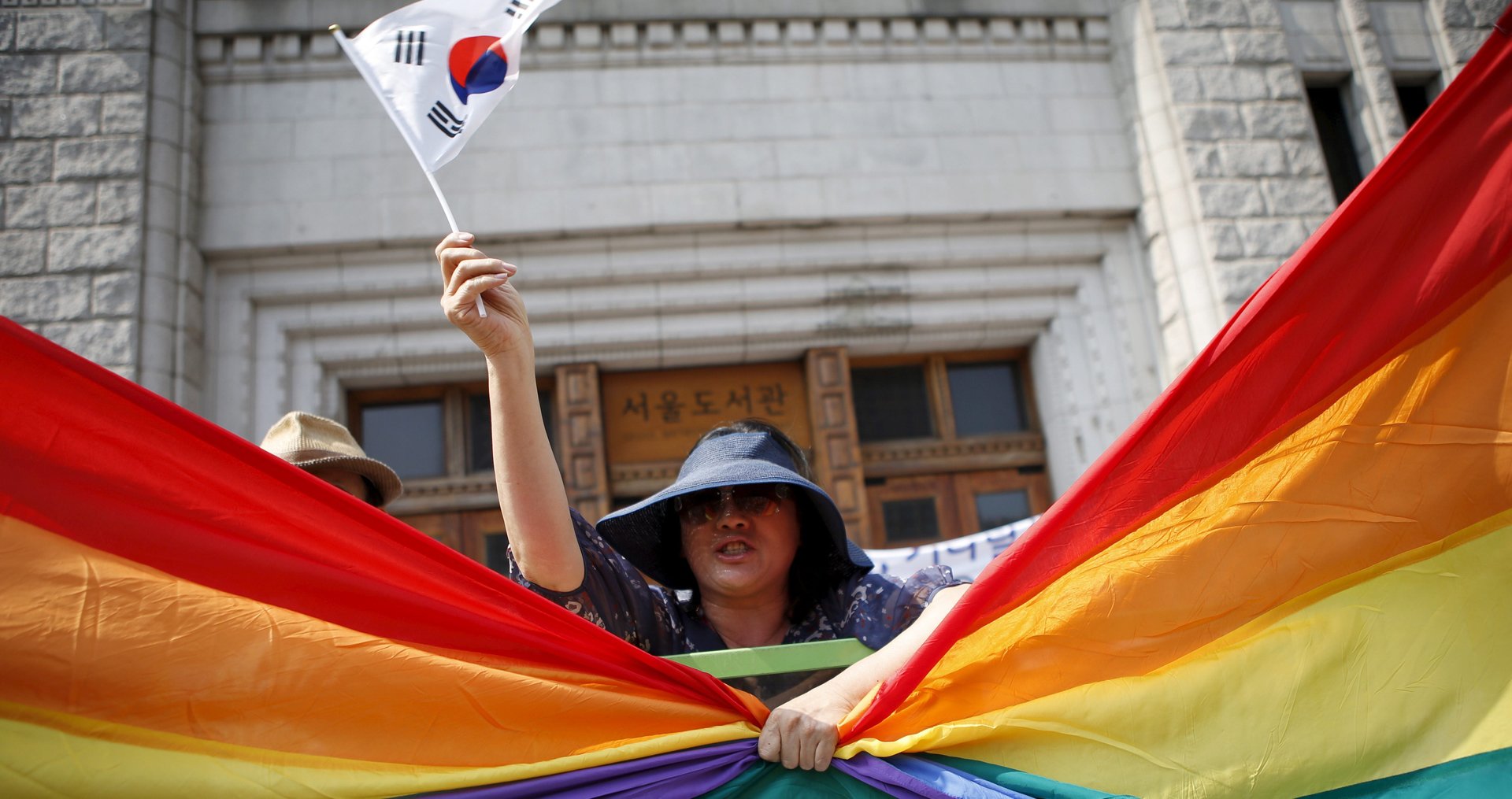Being a progressive politician in Korea doesn’t stop you from being homophobic
Moon Jae-in, the favorite to be South Korea’s next president, is generally regarded as the liberal in the fray. He’s a former human rights lawyer who spent years fighting for democracy in South Korea. Now, he also says he’s against homosexuality.


Moon Jae-in, the favorite to be South Korea’s next president, is generally regarded as the liberal in the fray. He’s a former human rights lawyer who spent years fighting for democracy in South Korea. Now, he also says he’s against homosexuality.
After eight years of conservative rule—which ended with the recent impeachment of president Park Geun-hye—Korea is almost guaranteed to have a more progressive leader. In Korea, though, that generally means a politician who plans to take a more conciliatory stance in dealing with North Korea, for example—at the risk of being labeled a North Korea sympathizer by conservatives—rather than a social progressive who will assume the mantle of defending the rights of minorities or promoting generous social welfare programs.
At a presidential candidate debate held on Tuesday (April 25), ahead of the May 9 election, conservative candidate Hong Jun-pyo of the Liberty Korea Party raised the issue of the status of gay men in the Korean military, after news reports emerged last week alleging that there was a witch-hunt for gay soldiers by army officials. Hong also blamed homosexuals for spreading HIV in Korea. When prompted by Hong—who is third in the polls—Moon said he agreed with him that gay soldiers could undermine Korea’s military. Moon then went on to say that he opposed homosexuality.
That’s probably all right with much of the Korean population, which remains largely conservative and religious. Less than 24% of Koreans said they had “no reservations about homosexuality,” according to a 2014 survey conducted by the Asan Institute for Policy Studies, a think tank.
“Why can’t some people see that the president should be supporting the sentiment of the majority of citizens, and that he isn’t a revolutionary warrior fighting for the rights of sexual minorities?” commented (link in Korean) a supporter of Moon.
Moon’s remarks were probably aimed at warding off competition from the centrist tech titan who’s current the second-favorite to win, said one political scientist.
“Moon is very vulnerable in terms of the conservative vote, which Ahn Cheol-soo has more of. Moon is vulnerable because of… the fear of conservatives that he’s going to give the store away to North Korea,” said Katharine Moon, a professor in political science at Wellesley College in Massachusetts (no relation to Moon Jae-in). “But even if Moon’s comments reflect over 50% of how the population feels about sexuality, it’s still a cheap shot.”
Thirteen LGBT rights activists were arrested after they staged a protest outside the National Assembly in Seoul in protest against Moon’s comments.
Yesterday (April 27), Moon tried to clarify (link in Korean) that his views are more nuanced than might have appeared at the debate. He said that he believes that there may be side effects if homosexuality were to be decriminalized in the military because “the military is a place where one’s gender is prominent. It is a little early to legalize homosexuality in the military.” However, he said that he thinks Korea should be “open about same-sex marriage” but since that it isn’t possible right now, marriage equality “should not be encouraged.”
“Many sexual minorities are still being discriminated and I wish for a world where they will not be discriminated and can live confidently,” Moon said, adding that one’s sexuality was a “private matter” that shouldn’t require the agreement or disagreement of others.
Ahn, the centrist candidate, has also said he does not favor legalizing same-sex marriage.
Only one of the 14 presidential candidates, Sim Sang-jung, has expressed clear support for gay rights, and said she would push for sexual minorities to be included in proposed anti-discrimination legislation that has been stymied by pressure from Christian groups for years. Sim, who heads the Justice Party, has been a long-time advocate (link in Korean) for minority rights in Korea, having established the women’s student council at Seoul National University as a student. She also once worked in secret as a factory worker, led a labor union (link in Korean), and was placed on a wanted list after her role in a major labor protest.
—Sookyung Jung contributed reporting.